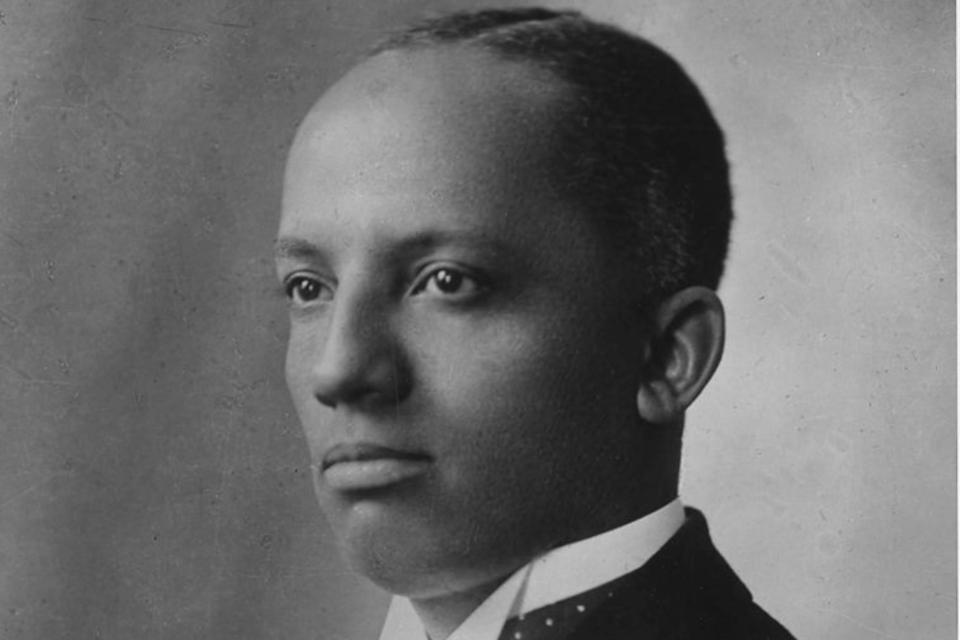As you may know, every February the US observes Black History Month. Since the 20th century, Americans have used this time to remember the achievements, contributions, and of course history of African Americans. Along with encouraging activism and helping empower modern Black individuals, this time also exists to celebrate Black culture. From the grave history of slavery to the Civil Rights Movement and up to Black Lives Matter, African American history is the history of America herself. Read on for facts about Black History Month to help you better understand the origins, purpose, and ideology of this annual observance.
7 Black History Month Facts
1. The idea came from Black historian Carter G. Woodson.
Born in 1875, Carter G. Woodson was the son of former enslaved persons. After becoming the 2nd Black American to earn a Ph.D in history, he was dismayed to find that there was a dearth of primary materials regarding Black Americans to be found in libraries.
In 1915, he founded the Association for the Study of African American Life and History (ASNLH) to mitigate this. Woodson had many accomplishments over his tenure as a Black historian, but perhaps his most well-known was when in 1925, he proposed a “Negro History Week” occur annually in February. Originally, his intention was to make sure the previously untold Black history facts were being taught to Black children. In a pamphlet advertising the holiday, he wrote: “If a race has no history, if it has no worthwhile tradition, it becomes a negligible factor in the thought of the world, and it stands in danger of being exterminated.” (source)
2. Black History Month was originally only a week-long observance.
Though we celebrate for the entirety of February today, originally, it was only intended to be one week in the middle of the month. While the movement was primarily observed on college campuses and by activist groups, it wasn’t until the 1960s that Black college students at Kent State University suggested the observation become a month-long affair. 1970 was the first year Black History Month as we understand it today was celebrated. (source)
3. Black History Month was officially recognized in 1976.
“In the Bicentennial year of our Independence, we can review with admiration the impressive contributions of black Americans to our national life and culture.” -Gerald R. Ford, Feb. 10, 1976
In his February 10th speech in 1976, President Gerald Ford urged all Americans to join in on the month-long observance. In his speech, Ford acknowledged the neglected contributions of Black Americans throughout the country’s history and encouraged Americans and to celebrate and spread facts about Black history during its observance. (source)
4. February was chosen for tradition, as well as to coincide with the birthdays of prominent figures.
Though February is the shortest month of the year, Woodson didn’t choose it blindly. Two great Americans who play a prominent role in Black history were born in February, including President Lincoln and Frederick Douglass, whose birthdays fall on the 12th and 14th respectively.
Perhaps more importantly, however, Douglass was a traditionalist. February had been a time of remembrance and reform for Black Americans for almost a century. Since his assassination, the Black community had taken to celebrating the former president’s birthday, adding in Douglass’ legacy in 1890. Though Woodson wasn’t a fan of these celebrations, he decided to use their momentum to promote his idea in the hope it would help educate his community on the incredible contributions of these Americans to their history. (source)
5. Countries all over the world have taken up the observance.
Because Black history facts can and should be learned across the globe, it’s not just the US that has taken up the endeavor. Canada joins the US in celebrating in February. The UK has been celebrating the observance every October since 1987. Other countries that participate in similar observances include Ireland, the Netherlands, Australia, Italy, Panama, Costa Rica, Peru, and Brazil. (source)
6. Each year has a different theme.
Since the 1920s, each observance of the tradition has had a special theme intended to emphasize one aspect of the unique experience of the Black community throughout history. For 2024, the theme was African Americans and the Arts. Other themes include Black Resistance (2023), Civil Rights in America (2014), and African Americans and the Vote (2020) Let us Have Peace(1946), The Centennial of the Fourteenth Amendment Afro American History Week (1968), and Black Women (1996). (source)
7. Woodson expected the weekly celebrations to eventually end.
Though Woodson dedicated his life to the education of the Black community about his history, he fully expected the week-long celebration he founded to come to an end one day. He died in 1950 before the Civil Rights movement took off, and long before the president would acknowledge his mission as a month-long observance. Though many individuals, organizations, and institutions have grown Black History Month into what it is today, it was through Woodson’s passion and dedication to his heritage and community that we have this celebration today. Of course, while Black History Month might only be officially observed in February, Black American history facts are American history facts and should never be limited to just one month out of the year. (source)
Have any black history facts you’d like to share? Post them in the comments below!




